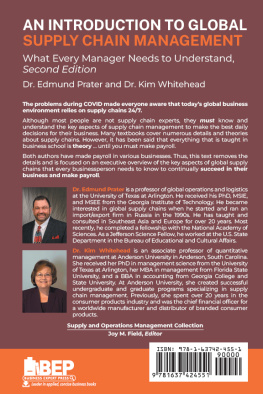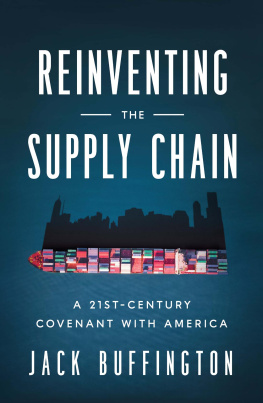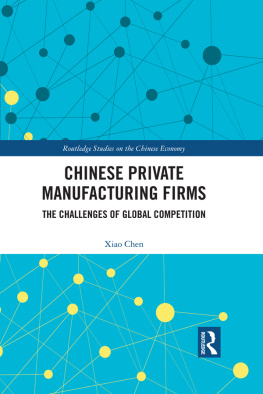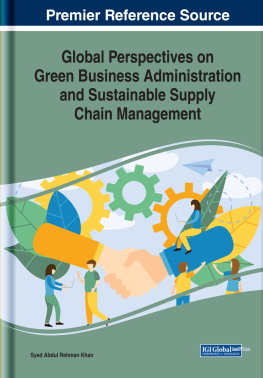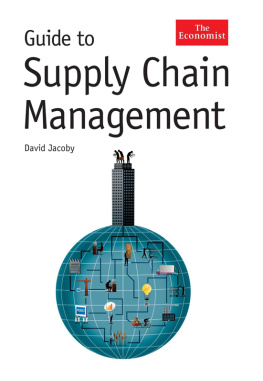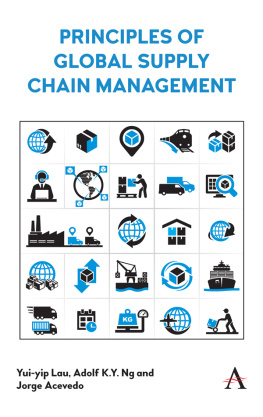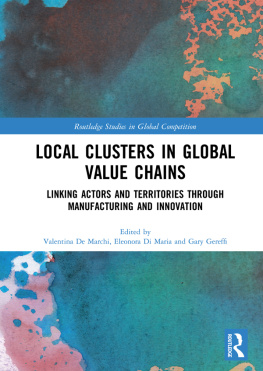
Multinationals, Global Value Chains and Governance
This book uses the examples of local supply firms in China and Brazil and their connections to the global automotive industry to explore the nature of current global value chains. It argues that lead firms make use of product architecture to globalize their procurement and supply chain management and that they effectively restructure the global supply base by internationalizing the most capable supply firms, thereby creating oligopolies controlled by the lead firm. The book goes on to contend that some firms have gained such powerful positions that they have gained a degree of control over other firms without the necessity of ownership altering the mechanics of governance. Also, it shows how, although some supply firms from emerging markets have utilized their business ties with western assembly firms to upgrade themselves within the global value chain, most are squeezed out through increased global competition. Overall, the book makes a major new contribution to the economic theory of governance.
Peter Hertenstein, who completed his doctorate at the University of Cambridge, is a guest lecturer in International Management at the University of Antwerp and works in strategy consulting at Roland Berger.
Routledge Studies on the Chinese Economy
Series Editor
Peter Nolan, Director, Centre of Development Studies; Chong Hua Professor in Chinese Development; and Director of the Chinese Executive Leadership Programme (CELP), University of Cambridge
Founding Series Editors
Peter Nolan, University of Cambridge
Dong Fureng, Beijing University
The aim of this series is to publish original, high-quality, research-level work by both new and established scholars in the West and the East, on all aspects of the Chinese economy, including studies of business and economic history.
The Political Economy of Banking Governance in China
Xuming Yang
Reforming Chinas Healthcare System
China Development Research Foundation
Chinese Private Manufacturing Firms
The Challenges of Global Competition
Xiao Chen
The Silk Road and the Political Economy of the Mongol Empire
Prajakti Kalra
The Evolution of Chinas Banking System, 19932017
Guy Williams
China and the West
Crossroads of Civilisation
Peter Nolan
Wind Power in China
Ambiguous Winds of Change in Chinas Energy Market
Julia Kirch Kirkegaard
Multinationals, Global Value Chains and Governance
The Mechanics of Power in Inter-firm Relations
Peter Hertenstein
For more information about this series, please visit: www.routledge.com
First published 2020
by Routledge
2 Park Square, Milton Park, Abingdon, Oxon OX14 4RN
and by Routledge
52 Vanderbilt Avenue, New York, NY 10017
Routledge is an imprint of the Taylor & Francis Group, an informa business
2020 Peter Hertenstein
The right of Peter Hertenstein to be identified as author of this work has been asserted by him in accordance with sections 77 and 78 of the Copyright, Designs and Patents Act 1988.
All rights reserved. No part of this book may be reprinted or reproduced or utilised in any form or by any electronic, mechanical, or other means, now known or hereafter invented, including photocopying and recording, or in any information storage or retrieval system, without permission in writing from the publishers.
Trademark notice: Product or corporate names may be trademarks or registered trademarks, and are used only for identification and explanation without intent to infringe.
British Library Cataloguing-in-Publication Data
A catalogue record for this book is available from the British Library
Library of Congress Cataloging-in-Publication Data
A catalog record for this book has been requested
ISBN: 978-1-138-39199-4 (hbk)
ISBN: 978-0-429-42242-3 (ebk)
Typeset in Times New Roman
by Apex CoVantage, LLC
To My Wife and Children
Peter Hertenstein (Ph.D., University of Cambridge) is a guest lecturer in International Management at the University of Antwerp and works in M&A and strategy consulting at Roland Berger. His research interests include strategic management, internationalization of the firm, global value chains, and the catch-up strategies of firms from the emerging markets. His research has been published in major international management journals, such as the Management International Review , Asia Pacific Journal of Management and Technovation . He has been a visiting scholar at the Haas School of Business at the University of CaliforniaBerkeley and the China Europe International Business School (CEIBS).
This book is based on a research project that I conducted for my Ph.D. in Development Studies at the University of Cambridge, England. The project started off with the objective to explore the role large western multinationals play for the development of the local industries in the two emerging markets of Brazil and China. Over the time of the research I realized that the global automotive value chain has undergone significant and deep structural changes over the past decades. The assembly firms have shifted their approach to orchestrate their supply base to control the processes outside the firm. It became obvious that some of the largest and most powerful firms in the industry have gained a high degree of control over some of the other firms in the industry and extended their orchestrating activities even beyond the first tier of suppliers. As a consequence, the attention of the research project shifted to explore the power asymmetries that determine the inter-firm dynamics in the global value chain. At center stage was the modern lead firm, a powerful and large multinational corporation, spanning across national borders and multiple continents, which governs and orchestrates trade and capital flows of entire industries. Less powerful firms participating in global value chains are increasingly becoming dependent on the leading multinational corporation and have to follow the strategic direction set by the lead firm. New forms of governance emerged that are based on power differences between the firms. Through the research I explored the mechanics of governance within several layers of participating firms in the global value chain of the automotive industry. By using the global value chain framework, the changing inter-firm dynamics between buyer and supplier were analyzed. The results highlight the role of product architecture in defining the value chain governance approach. Through the evolution of product architecture, the lead firms can globalize their approaches to procurement and supply chain management. Moreover, the globally harmonized products allow the lead firm to effectively restructure the global supply base to establish a globally harmonized components supply industry by internationalizing the most capable supply firms. Oligopolies along the entire global value chain are consciously created by the lead firm. The dynamics of competition between supply firms are changing, as the market for integral components with high asset-specificity is merging into one global market with oligopolistic and oligopsonistic features. Returning to the original question, I explored how the new forms of governance pose new challenges for the integration of developing markets into the world economy. In particular, firms from the emerging markets face a new set of challenges through increased globalization of markets, concentration of power, and new requirements for participation set by the lead firms in the value chain. While some supply firms from the emerging markets have been able to utilize their business ties with western assembly firms to upgrade within the global value chain, most are under pressure to be squeezed out of the global value chain through increased global competition.


